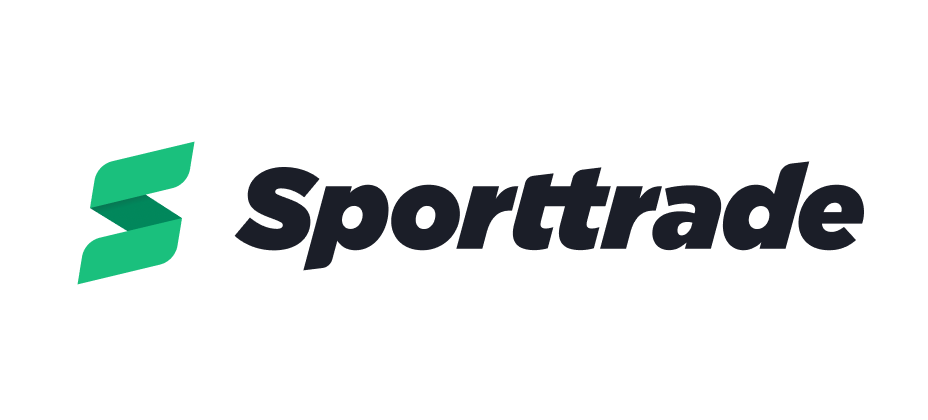Setting The Record Straight
The Iowa and Iowa St. sports betting investigation was resurrected last week, but like the original investigation, there's a lot of missing nuance.
The Bulletin Board
NEWS: Unravelling Geocomply’s role in the Iowa and Iowa St. betting scandals.
WEEKEND CATCHUP: Underdog leaves Maine; MA poll on betting behaviors + Bally Bet launch timeline.
NEWS: News and notes from the 2024 Indian Gaming Association Tradeshow.
QUICK HITTER: PropSwap gets its first partner.
AROUND the WATERCOOLER: More of the same is not the answer.
STRAY THOUGHTS: Friend of the program spotlight.
SPONSOR’S MESSAGE - Sporttrade was borne out of the belief that the golden age of sports betting has yet to come. Combining proprietary technology, thoughtful design, and capital markets expertise, our platform endeavors to modernize sports betting for a more equitable, responsible, and accessible future.
Learn more about what makes Sporttrade an unparalleled player experience here.
GeoCompy and the Iowa and Iowa St. Betting Scandals
GeoComply came under fire after the Des Moines Register published a two-part series (Part 1 and Part 2) last week that delved into the geolocation company’s role in an investigation into student betting at Iowa and Iowa State University.
The investigation has raised eyebrows and questions since it was first announced:
How did the investigation begin?
Why Iowa and Iowa St.?
Why haven’t similar investigations occurred at other schools?
Once it reached the courts, we started getting some answers.
The investigation was essentially a fishing expedition by a Division of Criminal Investigation agent. There were no warrants and no probable cause. Someone in the Iowa DCI had a hunch and went with it.
“In the motion to suppress, the defense alleged that a special agent for the Division of Criminal Investigation violated the agency's limited-use agreement with a geofencing tracking firm when he used its software to locate places inside Iowa State athletic facilities where athletes were making wagers on mobile betting platforms. The agent later obtained account information from the platforms to identify the athletes and third parties whose credit cards were used.”
The agent needed to get account information from the platforms because GeoComply’s data is anonymized.
The charges were dropped in March after defense attorneys filed a motion to dismiss on the grounds that DCI misused Geocomply’s tracking software. However, the damage was already done, as several collegiate careers were derailed.
So, if the case was dismissed, why did the Des Moines Register resurrect it?
The Des Moines Register story paints GeoComply as complicit or encouraging the investigation.
The depositions paint a different story, as does GeoComply’s decision to cease offering Iowa law enforcement access to its data after they discovered it was misused to build the case.
GeoComply notified DCI and regulators in an email made public in court filings that it was disabling access to its software as of January 26, 2024. In addition to its geolocation technology, GeoComply offers its clients fraud detection services.
“In light of recent public events and following a review and evaluation of ongoing access to our data and tools, it has come to our attention that DCI may have exceeded the intended and outlined scope of its Kibana access-and-use privileges.”
Another factor is the separation between the investigations unit and regulators in Iowa, as it is one of two mobile betting states (Michigan is the other) where this is the case. The structure helps explain the strange email exchanges posted in the Des Moines Register articles where it looks like GeoComply is bypassing regulators to deal with the DCI.
Regarding the Des Moines Register columns, GeoComply issued a statement to STTP that reads in part:
“Recent coverage by The Des Moines Register got several facts wrong… GeoComply’s mission in Iowa and beyond remains unchanged: to equip our clients with industry-leading geolocation compliance, Know-Your-Customer (KYC), and anti-fraud solutions. When required by law or regulation, our technology plays a pivotal role in lawful investigations because it provides indispensable and accurate data.”
So, what was GeoComply’s role in the investigation? It was precisely what one would expect from a licensed company whose business involves geolocation data, KYC, and fraud detection. The difference in Iowa is that GeoComply was seemingly misled by an investigator conducting warrantless searches and changing the scope of the investigation, which led to the company revoking DCI access to its data and tools.
“According to the filing, [Mark] Ludwick, a state witness, testified that he was told by an agent leading the operation that the investigation would be "purely administrative" and would not result in criminal charges. Ludwick interviewed Iowa State football player Isaiah Lee under that premise, and received confirmation from Lee that he had placed sports wagers under another person's account.”
Weekend Catchup: 5 DFS Operators Exit ME; Unexpected MA Poll Results; Bally Bet Coming Soon to MA?
Underdog leaves Maine: In October, Maine reversed course on Pick’ Em-style DFS contests, saying the player-vs-the-house contests violate the state’s definitions of fantasy sports. The state also handed Underdog Fantasy (a newsletter sponsor) a $400,000 fine. Underdog ceased offering Pick’ Em games in Maine. Now, with its license up for renewal, Underdog and four other DFS operators have decided to exit the state completely, with a spokesperson calling it a “business decision.”
Apocolypse Now Later: According to a CommonWealth Beacon/GBH News poll, the cohort believed to be the most at-risk for developing a gambling addiction, 18-29-year-olds, has been betting fairly responsibly. According to the Commonwealth Beacon, “Of the 30 percent of 18- to 29-year-olds who say they have placed a sports bet in the last year, most say they only occasionally bet and generally place bets for less than $20. Yet about a fifth of those who bet in the last year said they bet more than once a week, and another fifth said they did so about once a week.”
Bally Bets Coming to MA: During an MGC meeting, Bally Bet’s COO Brett Callapp pointed to June for the company’s long-awaited launch in Massachusetts—Bally’s received a license way back in January 2023. Bally’s isn’t going to upset the sports betting landscape, but it can draw on its database from its two Twin River casinos in neighboring Rhode Island.
SPONSOR’S MESSAGE - Underdog: the most innovative company in sports gaming.
At Underdog we use our own tech stack to create the industry’s most popular games, designing products specifically for the American sports fan.
Join us as we build the future of sports gaming.
Visit: https://underdogfantasy.com/careers
IGA 2024 Recap
Strong attendance numbers, but not the strongest: Attendance dipped slightly, from 9,000 last year to 7,400 in 2024 (still the second most attended IGA ever). A likely cause was location. The 2023 IGA Tradeshow was held in San Diego; this year, it was in Anaheim, which is less of a tourist destination and a far more difficult city to fly into. IGA returns to San Diego next year and Las Vegas in 2026.
The HUGE story (almost) no one is talking about: While it’s likely several years and numerous court cases away, “There was a lot of interest in the Department of Interior’s new rules for tribal compacts with their state that drew overflow crowds,” CDC Gaming Report’s Buck Wargo reported. “The rules put tribes on an equal footing with commercial online operators.” You can read my previous coverage of the new DOI rules here.
A random stat: “Close to 75 percent of signup online, both for iGaming and sports wagering, are people that aren’t currently in the database of land-based operations,” Sun Gaming & Hospitality CEO Bobby Soper said. “And it’s been a needle mover on the EBITDA line, so I think there’s a ton of upside for tribes.”
A word from the chair: IGA Conference Chair Victor Rocha explained what went wrong with sports betting in 2022 and why retail betting is on hold until 2026 and mobile betting even longer, telling Legal Sports Report the tribal plan was/is to start with retail betting and then expand to mobile. “We put it [retail betting] on the ballot in 2022 because we knew that it’s going to happen eventually. We were getting ahead of the game. And then the sports betting companies decided they wanted to speed things up, and that (messed) things up. So it’s about getting back to where we were. It’s a reset.”
Quick Hitter: PropSwap Lands a Casino Partner
PropSwap has inked its first casino partner, teaming up with Harrah’s Gulf Coast in Mississippi. The partnership was in place for this past weekend’s The Masters tournament, with PropSwap planning on being on-site for other tentpole events throughout 2024. The full press release can be read here.
I was first introduced to PropSwap at a gaming conference way back in 2017 when I struck up a conversation with PropSwap co-founder Ian Epstein - The company was one of the startups pitching its product at the GiGSE conference in San Diego.
PropSwap is the StubHub of sports betting.
The company allows users to list active sports bets for sale on a secondary market. As Epstein succinctly put it, “Customers who have placed a bet at a legal, licensed US sportsbook can post their ticket for sale, at a price they set, and we will help them find a buyer.”
SPONSOR’S MESSAGE - Maximize your trading success in 2024 with OpticOdds’ real-time Odds Screen.
Built for operators with an emphasis on speed and coverage, OpticOdds offers:
Pre-match & in-play main lines, alternative markets, player props for the Big 6, soccer, and more
Create bespoke custom weighted lines on the screen and receive live alerts for line movement via Slack or Teams
Push format API offering real-time betting odds from 150+ sportsbooks: player props, alternate markets, injury data, historical odds, settlements, scores & more
Get in touch at opticodds.com/contact.
Around the Watercooler
Social media conversations, rumors, and gossip.
A recent editorial in the Washington Post argued for tighter federal regulations of sports betting, specifically citing legislation introduced by Rep. Paul Tonko and Sen. Richard Blumenthal.
In an excellent LinkedIn post that should be read in full, Behnam Dayanim, a partner at Orrick, Harrington, and Sutcliffe LLP, explained why more of the same is the wrong approach to gambling regulation in the year 2024:
“What struck me most about the editorial is something that I expect would strike any gaming lawyer or executive reading it: in what universe could one conclude that the gaming industry lacks substantial regulation? It is among the most regulated industries on earth. I think what the paper really means - or at least what I’d like to think it means - is that we are regulating the wrong things.”
As Dayanim explains, the current regulatory model is outdated (something my friend Richard Schuetz often emphasizes). It was designed for a bygone era when organized crime controlled casinos, hence the focus on disclosure and suitability.
Dayanim goes on to say:
“Instead, the focus should be on those issues that are important: responsible gaming, responsible advertising and the like. Railing against gambling is like raging against the weather. It will be with us whether we like it or not. Before legal sports betting, there was illegal sports betting (and there still is - see Shohei Ohtani). What states should do is take a hard look at how they can streamline those regulations that no longer are fit for purpose and examine where new rules may be appropriate.”
Stray Thoughts
Friend of the Program Spotlight: Casino Reports
CasinoReports.com launched in late March, but the new affiliate news site is already making its presence felt—unsurprising given the talented group working on it.
I highly recommend the site’s Reel Lives interviews with some of the more exciting but lesser-known people who are integral to the gambling industry.
You’ll also find a weekly opinion column from the one and only Richard Schuetz, as well as a monthly column from yours truly on the latest legislative developments and trends.







Great article Steve.